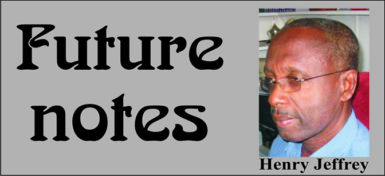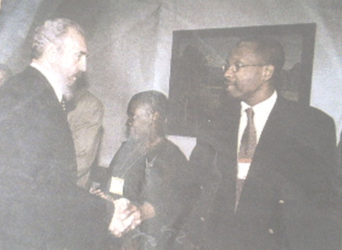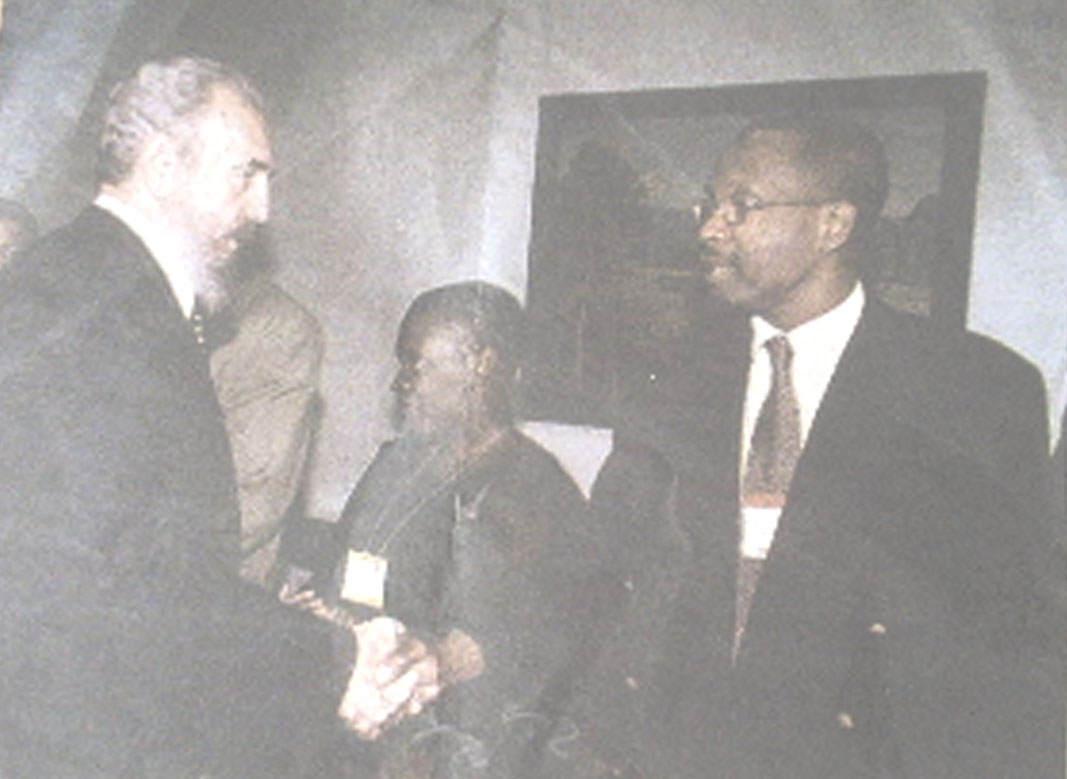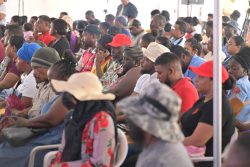On 27th April 1953, three months before Fidel Castro and his compatriots began their revolution by storming the Moncada Barracks in Santiago on 26th July 1953 the People’s Progressive Party won its first elections and was preparing to take government in Guyana. The Cuban revolutionaries failed in their first attempt to take government from the dictator Fulgencio Batista and were captured, incarcerated and tortured. About two and a half months later, on 9th October 1953, the PPP was thrown out of government and jail cells were also being prepared for them!
 Amnestied by Batista, Castro and his band regrouped in Mexico, persisted and when they won and took over government in 1959, the early exploits of the Cuban revolutionaries excited most reasonably educated Guyanese youths of my generation. Fidel Castro’s defeat of Batista, stand-off with Yankee imperialism, support for the Black power movement in the USA and strong stand against racism everywhere projected an ideological framework that was hugely impressive in our political context, where colonialism was pitched against nationalist forces bent upon winning independence.
Amnestied by Batista, Castro and his band regrouped in Mexico, persisted and when they won and took over government in 1959, the early exploits of the Cuban revolutionaries excited most reasonably educated Guyanese youths of my generation. Fidel Castro’s defeat of Batista, stand-off with Yankee imperialism, support for the Black power movement in the USA and strong stand against racism everywhere projected an ideological framework that was hugely impressive in our political context, where colonialism was pitched against nationalist forces bent upon winning independence.
 The passing of Fidel Castro and the praise and derision that are being heaped upon him compel me to assess the ideological journey that I have taken to my present stance on Cuba. Although I had long come to consider established communism as oppressive, I was very idealistic about Cuba when I entered the University of Warwick in 1970. There, I was fortunate to do a programme on Latin American history with the late Professor Alastair Hennessey, who pioneered the study of Cuba in the UK. In my view, Hennessey was sympathetic towards the Cuban revolution but also a rigorous scholar, and thus instilled a good dose of realism into my idealism.
The passing of Fidel Castro and the praise and derision that are being heaped upon him compel me to assess the ideological journey that I have taken to my present stance on Cuba. Although I had long come to consider established communism as oppressive, I was very idealistic about Cuba when I entered the University of Warwick in 1970. There, I was fortunate to do a programme on Latin American history with the late Professor Alastair Hennessey, who pioneered the study of Cuba in the UK. In my view, Hennessey was sympathetic towards the Cuban revolution but also a rigorous scholar, and thus instilled a good dose of realism into my idealism.
For instance, I soon understood that Cuba was a command society/economy whose policies are not replicable in open societies such as Guyana, and that certain negative social conditions require a multiplicity of interventions if they are to be severely mitigated. Take two examples that still apply today.
Admire as we may Cuba’s achievements in health and education, there is no way we could replicate a socio/political context in which the average income of government employees is about US$25 a month, where specialist doctors are paid about US$70 a month and a newly qualified nurse takes home US$30. It would be just as impossible to gain acceptance for the range and quality of services the Cuban state provides for its citizens. From as early as primary school age, Cuban children are made to clean their schools: try that here at the risk of serious injury!
Secondly, while the Cuban government tried its utmost by passing many laws to eliminate institutional racism, the Economist magazine could still claim that ‘Barack Obama may turn into a far more formidable foe than his predecessors. The danger starts with his example: after all, a young, black, progressive politician has no chance of reaching the highest office in Cuba, although a majority of the island’s people are black’ (http://www.economist.com/node/12853934). Professor Esteban Morales of Havana University observed that ‘It might seem that racism and discrimination have disappeared from Cuban society; a least that is what many believed. (But) …. to imagine that racism and discrimination had disappeared was an example of the worst kind of idealism’ (http://www.walterlippmann.com/docs2296.html).
The US economic blockade of Cuba, the island’s well recognised internal successes and its contributions to the global development of the human condition have generally muted criticisms of its political system. This I had already come to terms with when I made my initial visit to Cuba in 1976 as part of the first Guyana/Cuba Joint Commission led by Minister Desmond Hoyte. (In passing, three decades later, in November 2006, I was the minister leading the Guyana/Cuba Joint Commission delegation and the Cubans reminded me that I had been there in 1976).
The occasion of my dinner with Fidel was a later visit I made to attend the first intergovernmental meeting of the regional education project for Latin America and the Caribbean (Prelac). This was a relatively large and important education confab, attended by almost every country and related international organisations in the region in Havana in November 2002.
Briefly, Prelac was the culmination of efforts to improve regional education beginning with the Major Project of Education 1980-2000, which incorporated many international efforts such as the Education For All initiative, which was established in 1990. Fidel closed the conference by declaring that ‘only education can save the world.’
The thirty or so heads of delegation were invited to have dinner with the president at his residence, and after a short cocktail reception, during which the president mingled and exchanged views, dinner was served and, from my recollection, went on for about three hours.
Whether or not Fidel had a holistic, detailed view of everything in Cuba, he certainly had such an understanding of the education system. Throughout dinner, aided by two interpreters (one relieving the other at about half hour intervals) and a couple of young what we now call ‘fact checkers’, of whom he would make enquiries or who would interrupt him to correct his facts. There might have been a few interventions by his guests but for the most part he spoke while they ate.
He spoke about reforms aimed at raising the quality of primary schooling that were taking place; of the place of community cooperation, not money (which was in short supply) in raising education participation and standards; about the need to build a culture supportive of educational achievement, and the importance of social solidarity within and across communities and with friendly countries. He detailed efforts that were being made to revolutionize teaching at the secondary and university levels; the study and work approach after about grade nine to open up training for new professional careers, and the utilization of computer laboratories, audiovisual media, such as radio, television, video, print, etc, to foster universal access to higher education.
What was truly impressive was that Castro gave the impression that he personally knew the location of most if not all schools and which school had problems with its roof, steps, lighting etc.
It was quite a performance and when he finally stopped and Sir John Daniel, Assistant Director General for Education of UNESCO, took a few minutes to thank him for his personal hospitality and his government for hosting the conference, Castro took about twenty minutes to thank Sir John for his intervention. After that, no one risked saying another word!
He then offered the ladies bunches of flowers, which were quite well received until he presented the men with boxes of the coveted Cuban Cohiba cigars. He had to go find cigars for the women before we bade him farewell.
Dining with Commandant Fidel was an honour and certainly different!








